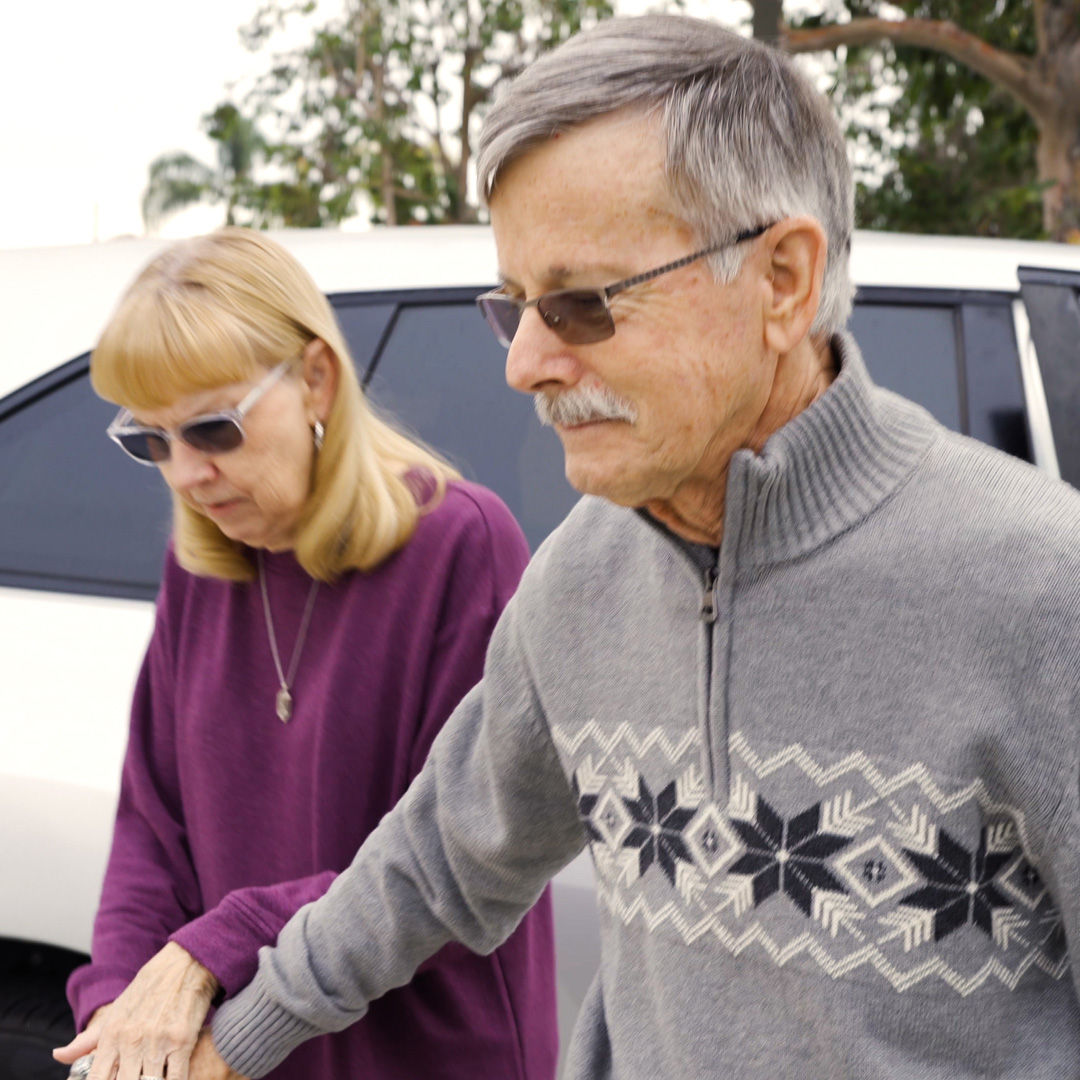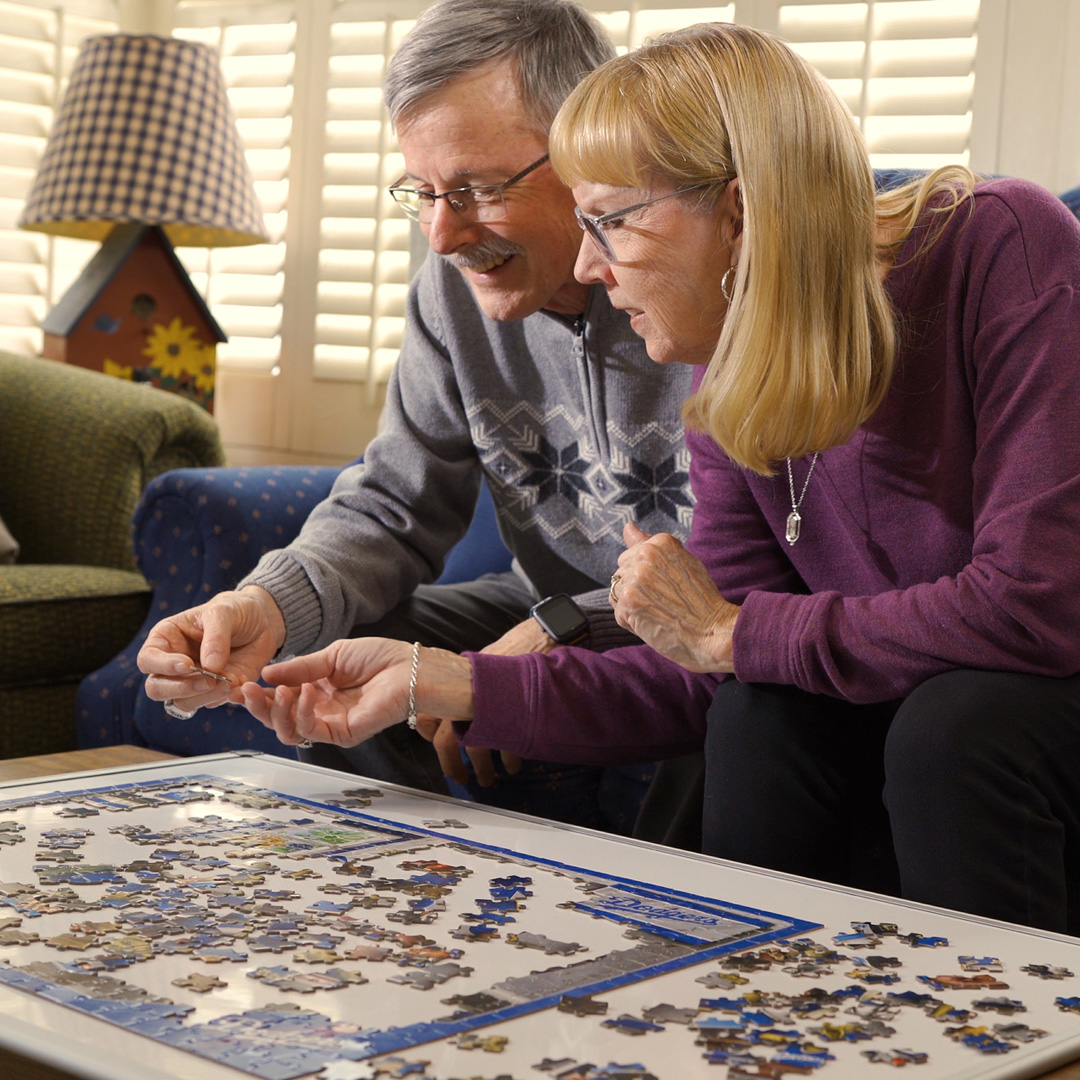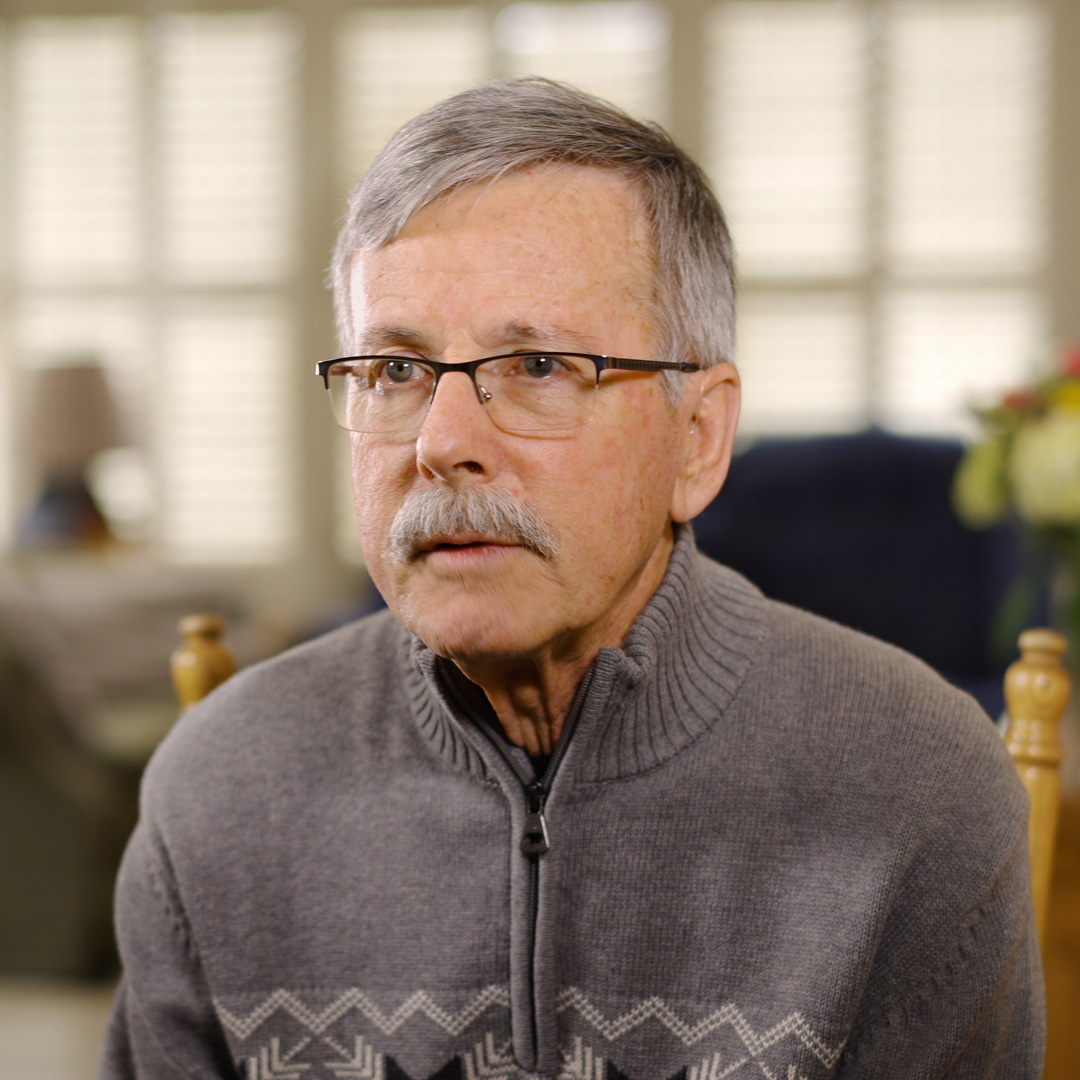Bob & Cheryl’s Story

Beyond Diagnosis: Bob & Cheryl’s Story of Hope
Faced with a difficult diagnosis, Bob and Cheryl developed a strong support system and found a lifeline through Alzheimer’s Los Angeles.
Bob’s journey began with a seemingly unrelated issue – a struggle with his eyesight. As a member of his community softball team, he found it increasingly difficult to follow the ball. Concerned, he sought medical advice and was diagnosed with cataracts. Despite undergoing surgery, Bob’s problems persisted.

In addition to his role as the CFO of a large company, Bob also served as the bookkeeper for his men’s golf club. His loving wife Cheryl noticed that he was struggling to keep financial records in order, a sign that something more profound was amiss. Despite their relentless efforts and multiple medical consultations, they were left frustrated and confused.
Finally, in January 2021, Bob received a correct diagnosis – Alzheimer’s disease and Posterior Cortical Atrophy (PCA), a rare visual variant of Alzheimer’s.

Bob says, “I was strangely relieved when I got the diagnosis because I finally knew what was wrong with me. There isn’t a cure for it yet, but they’re coming up with more and more breakthroughs, and there is no benefit in waiting [to get diagnosed].”
With this knowledge in hand, they got involved with the Memory Club® at Alzheimer’s Los Angeles. This free service is a comprehensive support, education, and peer group that meets weekly with people who are experiencing early stage symptoms of memory loss due to Alzheimer’s, another dementia, or Mild Cognitive Impairment. Care partners like Cheryl are also encouraged to join this supportive and empathetic community to explore issues related to caregiving.

Cheryl’s experience as a caregiver has been far from straightforward. She admits that she initially denied the reality of their situation. However, as she sought knowledge and support from Alzheimer’s Los Angeles, she realized that “the more you know, the better off you are.”
Bob’s commitment to raising awareness is also noteworthy – he tirelessly advocates for early diagnosis. Bob’s words resonate deeply: “Even if it doesn’t benefit me personally, it is important to me to be a part of something that may help others in the future.”
